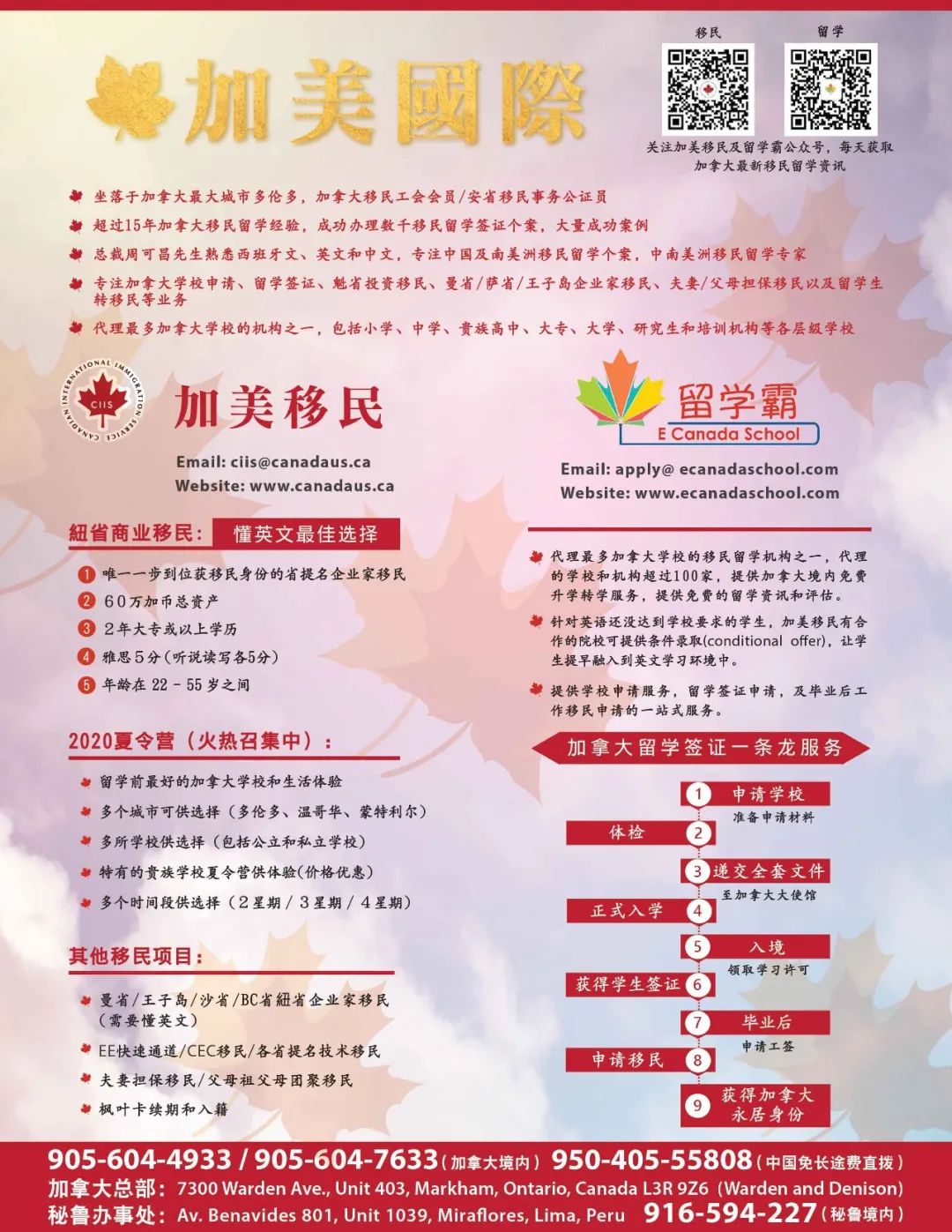Scan


Many universities students are asked by their elders what they have learned in the university. These elders may be out of curiosity or really want to understand what their children learned at university, but students sometimes have difficulty explaining the theoretical knowledge they have learned. I believe that apart from students whose families are from intellectuals, few parents know exactly what their children have learned in university. Before studying abroad, I also introduced the rankings of related universities and majors in Canada, but I did not mention what skills students will learn at the university. The students can answer the parents' questions.
1) Professional knowledge: This is the most basic understanding. The relevant theories learned by the students in the classroom or in the books and extracurricular research. This knowledge is convenient for our future work. I remember a professor who said, "If you can clearly explain the theory you have learned to a primary school student, it means that you have understood the key points learned." Some professors also share their own experiences to enrich students' cognition. The school will consolidate the knowledge learned through examinations, homework, projects, etc. In addition, students will learn professionalism or professional ethics. Demonstrate work obligations and efficiency. Demonstrate integrity and moral behavior, consider the interests of the broad masses, and be able to learn from mistakes.
2) Critical thinking: In addition to the knowledge in books, one of the important skills is critical thinking. Critical thinking includes the individual's ability to judge and make correct decisions in personal judgment. For example, when we see a news or report, don't be numb to believe what is said, use the knowledge you have learned to analyze, if you don't understand, you can do some search online, and then combine your own knowledge or experience to judge. The ability to solve problems refers to the use of some basic methods to solve problems. For example, think about the pros and cons of everything. When you use this method to solve the problem, will there be any impact, if there is a negative impact, how to avoid it or reduce it as much as possible.
3) Creativity: This is a new way to express our ideas and the ability to think outside the framework of thinking. When we think about problems, we must not be limited by limitations. We must always think about why, if, what we can do. An obvious example is Iphone, a mobile phone keyboard concept that breaks the traditional mainstream. There are also artificial intelligence, home smart devices, autonomous driving technology, etc., which are created by people. Professors in university classes encourage students to think in many ways. So few students not only have to learn the knowledge in the class, but sometimes they have to do additional investigations.
4) Teamwork: Many university courses have group assignments. Unlike high school, there is a lot of work, and some need to give a lecture in the class after writing the report. This makes me understand and realize the importance of diversity and tolerance in cooperation because there will be different people in a group, unless there are friends you are more familiar with in the group, otherwise you need to know everyone Character and way of doing things. Teamwork can not only train a person's organizational and leadership skills, but also learn how to get along with people.
5) Public speaking: Although not all classes have speeches, this is definitely a practical skill because no matter what industry we are in, communication is very important. We can learn different presentation skills and communication methods, which can be used in appropriate occasions. Public speaking can also improve our self-confidence and ability to perform on the spot. Although this is not conducive to those students who are more introverted and do not like to speak, but after overcoming it, it will still be more beneficial to us after going to the society.
Of course, there are many things I learned in university; these are just more common. E-Canada School provides a one-stop service for students to apply for a study visa and immigration. Welcome to contact us. We will analyze the applicants in detail and tailor the most suitable study abroad immigration program for you.
